- Clone
- H5C6 (See other available formats)
- Regulatory Status
- RUO
- Workshop
- HCDM listed
- Other Names
- LIMP, LAMP-3, Melanoma-associated antigen (ME491), Pltgp40, gp55
- Isotype
- Mouse IgG1, κ
- Ave. Rating
- Submit a Review
- Product Citations
- publications
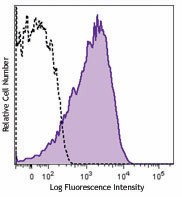
-

Thrombin-activated platelets were stained with biotinylated CD63 (clone H5C6, filled histogram) or mouse IgG1, κ (open histogram) isotype control, followed by Sav-PE.
| Cat # | Size | Price | Quantity Check Availability | Save | ||
|---|---|---|---|---|---|---|
| 353017 | 50 µg | £61 | ||||
| 353018 | 200 µg | £182 | ||||
CD63 is a 53 kD type III lysosomal glycoprotein also known as LIMP, LAMP-3, gp55, and melanoma-associated antigen (ME491). CD63 is a member of the tetraspan transmembrane superfamily (TM4SF) protein expressed on activated platelets, monocytes/macrophages, endothelium, fibroblasts, osteoclasts, and smooth muscle cells. CD63 may be involved in platelet activation and is thought to function as a transmembrane adaptor protein. CD63 has been shown to associate with CD9, CD81, VLA-3, and VLA-6.
Product DetailsProduct Details
- Verified Reactivity
- Human
- Reported Reactivity
- African Green, Baboon, Cynomolgus, Rhesus
- Antibody Type
- Monoclonal
- Host Species
- Mouse
- Immunogen
- T cell line HPB-ALL
- Formulation
- Phosphate-buffered solution, pH 7.2, containing 0.09% sodium azide.
- Preparation
- The antibody was purified by affinity chromatography and conjugated with biotin under optimal conditions.
- Concentration
- 0.5 mg/ml
- Storage & Handling
- The antibody solution should be stored undiluted between 2°C and 8°C. Do not freeze.
- Application
-
FC - Quality tested
- Recommended Usage
-
Each lot of this antibody is quality control tested by immunofluorescent staining with flow cytometric analysis. For flow cytometric staining, the suggested use of this reagent is ≤ 0.25 µg per million cells in 100 µl volume. It is recommended that the reagent be titrated for optimal performance for each application.
- Application Notes
-
Additional reported applications (for the relevant formats) include: Western blotting1, immunofluorescence2, and immunoprecipitation1.
-
Application References
(PubMed link indicates BioLegend citation) -
- Hildreth JE, et al. 1991. Blood 77:121. (IP, WB)
- Beatty WL, et al. 2006. J. Cell Sci. 119:350. (IF)
- Product Citations
-
- RRID
-
AB_2561676 (BioLegend Cat. No. 353017)
AB_2561676 (BioLegend Cat. No. 353018)
Antigen Details
- Structure
- Tetraspan transmembrane superfamily (TM4SF), type III lysosomal glycoprotein, 53 kD
- Distribution
-
Activated platelets, monocytes, macrophages, endothelium, fibroblasts, osteoclasts, and smooth muscle
- Function
- Platelet activation
- Interaction
- CD9, CD81, VLA-3, and VLA-6
- Cell Type
- B cells, Endothelial cells, Fibroblasts, Macrophages, Monocytes, Osteoclasts, Platelets
- Biology Area
- Cell Adhesion, Cell Biology, Immunology
- Molecular Family
- Adhesion Molecules, CD Molecules
- Antigen References
-
- Azorsa DO, et al. 1991. Blood 78:280.
- Kishimoto T, et al. Eds. 1997. Leukocyte Typing V1. Oxford University Press New York.
- Hildreth JE, et al. 1991. Blood 77:121.
- Anzai N, et al. 2002. Blood 99:4413.
- Gene ID
- 967 View all products for this Gene ID
- Specificity (DOES NOT SHOW ON TDS):
- CD63
- Specificity Alt (DOES NOT SHOW ON TDS):
- CD63
- App Abbreviation (DOES NOT SHOW ON TDS):
- FC
- UniProt
- View information about CD63 on UniProt.org
Related Pages & Pathways
Pages
Related FAQs
- How many biotin molecules are per antibody structure?
- We don't routinely measure the number of biotins with our antibody products but the number of biotin molecules range from 3-6 molecules per antibody.
Other Formats
View All CD63 Reagents Request Custom ConjugationCustomers Also Purchased
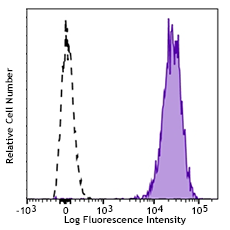
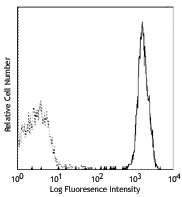
Compare Data Across All Formats
This data display is provided for general comparisons between formats.
Your actual data may vary due to variations in samples, target cells, instruments and their settings, staining conditions, and other factors.
If you need assistance with selecting the best format contact our expert technical support team.
-
PE anti-human CD63
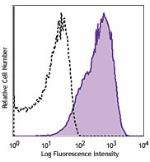
Thrombin-activated human peripheral blood platelets were sta... -
FITC anti-human CD63
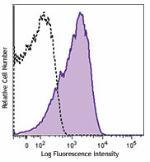
Thrombin-activated human peripheral blood platelets were sta... -
Pacific Blue™ anti-human CD63
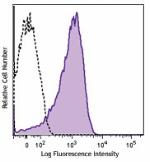
Thrombin-activated human peripheral blood platelets were sta... -
APC anti-human CD63
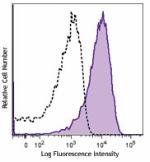
Thrombin-activated human peripheral blood platelets were sta... -
PE/Cyanine7 anti-human CD63
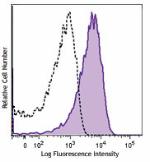
Thrombin-activated human peripheral blood platelets were sta... -
Alexa Fluor® 647 anti-human CD63
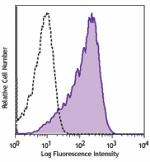
Thrombin-activated human peripheral blood platelets were sta... -
Biotin anti-human CD63
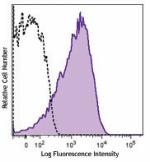
Thrombin-activated platelets were stained with biotinylated ... -
PerCP/Cyanine5.5 anti-human CD63
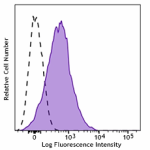
Thrombin-activated human peripheral blood platelets were sta... -
PE/Dazzle™ 594 anti-human CD63
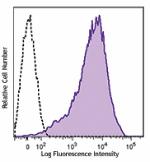
Thrombin-activated human peripheral blood platelets were sta... -
Brilliant Violet 421™ anti-human CD63
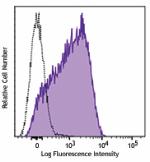
Thrombin-activated human peripheral blood platelets were sta... -
Brilliant Violet 650™ anti-human CD63
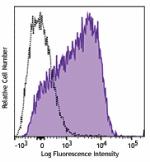
Thrombin-activated human peripheral blood platelets were sta... -
APC/Fire™ 750 anti-human CD63
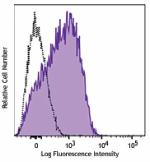
Thrombin-activated human peripheral blood platelets were sta... -
Alexa Fluor® 700 anti-human CD63
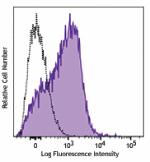
Thrombin-activated human peripheral blood platelets were sta... -
Brilliant Violet 510™ anti-human CD63
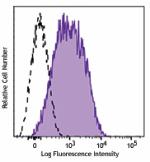
Thrombin-activated humana peripheral blood platelets were st... -
Alexa Fluor® 594 anti-human CD63
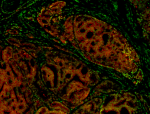
Human paraffin-embedded prostate tissue slices were prepared... -
TotalSeq™-A0404 anti-human CD63
-
Alexa Fluor® 488 anti-human CD63
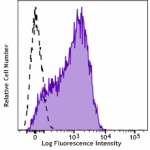
Thrombin-activated human peripheral blood platelets were sta... -
Ultra-LEAF™ Purified anti-human CD63
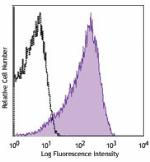
Thrombin-activated human peripheral blood platelets were sta... 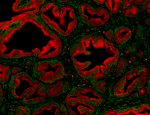
Human paraffin-embedded prostate tissue slices were prepared... -
Brilliant Violet 711™ anti-human CD63
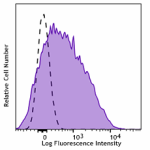
Thrombin-activated human peripheral blood platelets were sta... -
Brilliant Violet 785™ anti-human CD63
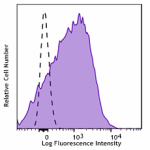
Thrombin-activated human peripheral blood platelets were sta... -
APC/Cyanine7 anti-human CD63
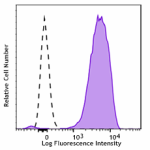
Thrombin-activated human peripheral blood platelets were sta... -
TotalSeq™-B0404 anti-human CD63
-
TotalSeq™-C0404 anti-human CD63
-
Brilliant Violet 605™ anti-human CD63 Antibody
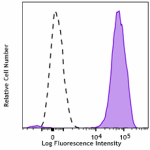
Thrombin-activated human peripheral blood platelets were sta... -
PE/Cyanine5 anti-human CD63 Antibody
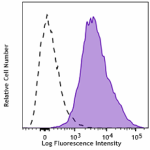
Thrombin-activated human peripheral blood platelets were sta... -
Spark Red™ 718 anti-human CD63

Thrombin-activated human peripheral blood platelets were sta...
 Login / Register
Login / Register 







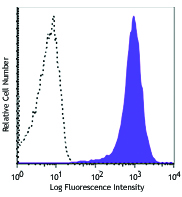
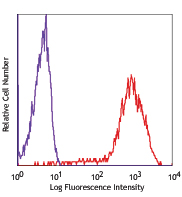



Follow Us